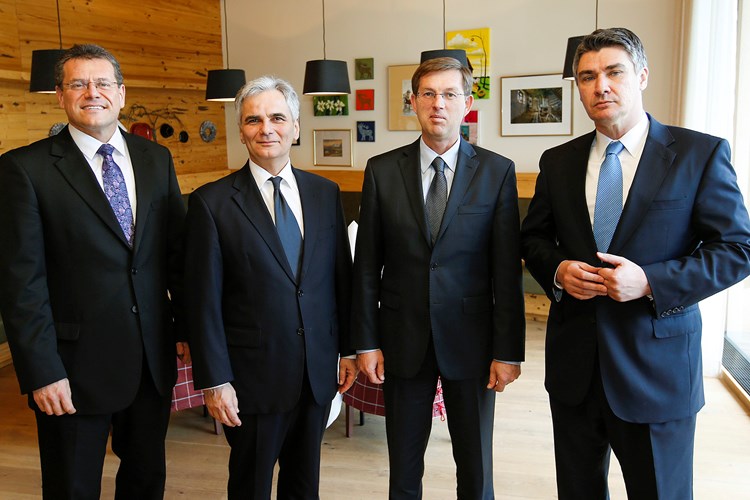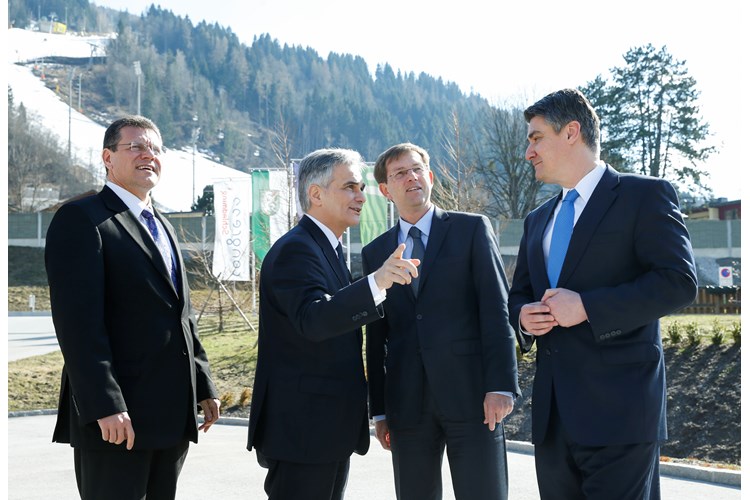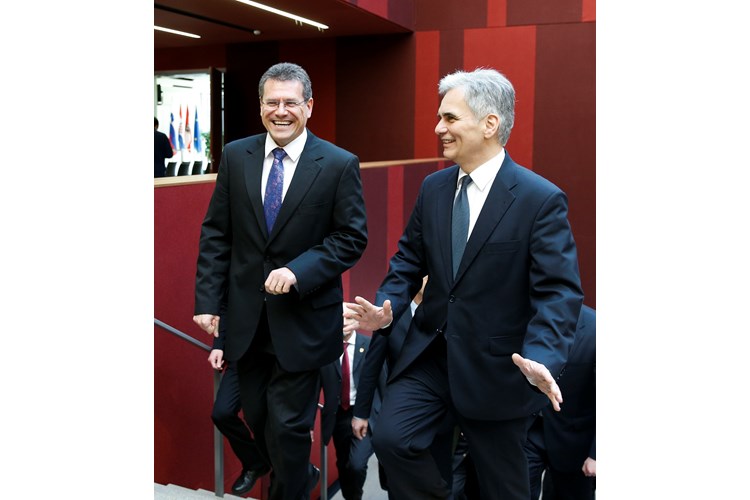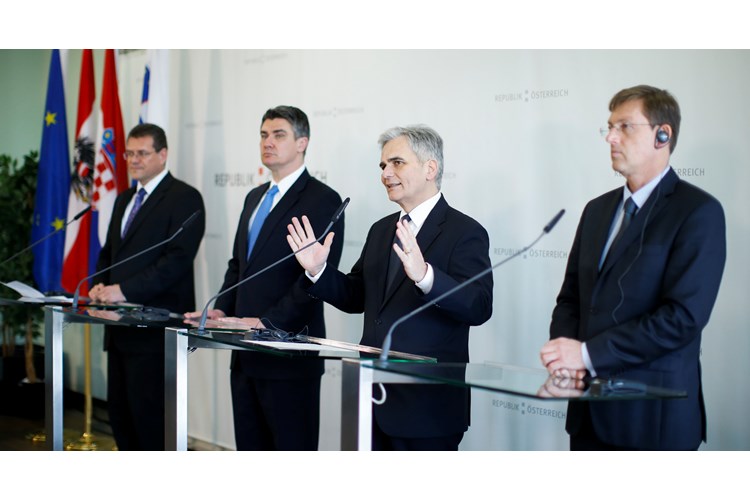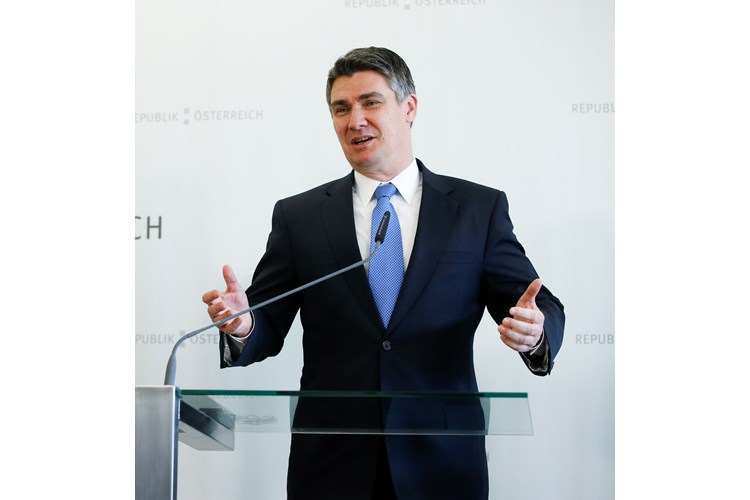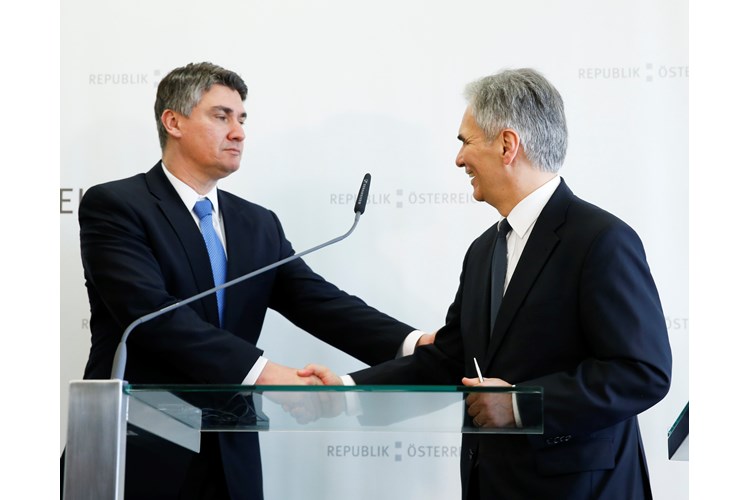- Published: 30.03.2015.
Prime ministers of Austria, Croatia and Slovenia meet to discuss energy priorities
The heads of government of Austria, Croatia and Slovenia and the European Union energy commissioner met on Saturday to discuss regional cooperation in energy and a European energy union.
The traditional trilateral meeting of Austrian Chancellor Werner Faymann, Croatian Prime Minister Zoran Milanovic and Slovenian Prime Minister Miro Cerar was held in the Austrian ski resort of Schladming, and it also involved European Union Energy Commissioner Maros Sefcovic.
"Croatia's position is pro-European, in favour of a European energy union, and our top priority in this context is construction of an LNG terminal on Krk island," Milanovic told a joint press conference. "This project is under way, we have applied for the Juncker plan. It is included in the European Commission's plan as being of common interest to the European Union," he added, expressing confidence that efforts by Brussels to achieve greater independence from Russia's energy supplies would "put wind into the sails" of the LNG terminal project.
Sefcovic confirmed that the LNG terminal was one of the very important projects of common interest.
Milanovic noted that Croatia was not fully independent in terms of energy supply, but that compared with countries in Central Europe it was in "a somewhat more comfortable position".
"About 60 per cent of gas comes from our own production, and explorations are under way in the Adriatic, primarily for gas," the Croatian PM said, citing the importance of environmental care.
Speaking of nuclear energy, which is strongly opposed by Austria, Milanovic said that Croatia and Slovenia shared the Krsko nuclear power plant, built with Western technology and under constant supervision. "We would be happy to have an alternative, but right now we don't. But right now we have 20 per cent of renewable energy sources and we would like to have more. It would be great if we could do without nuclear energy, but that's the reality," he added.
Faymann said that Austria was advocating "an exit from atomic energy" at the European level. "For us, that is neither a clean nor renewable source of energy," Faymann said, adding that he saw the way out in an energy union as an alternative to nuclear energy. He highlighted the importance of hydropower and other renewable energy sources not harmful to the environment.
Cerar said that Slovenia wanted to have "clean renewable energy sources" and that his government supported "energy integration at the EU level." He also stressed that energy policy must be accessible to citizens and cost-effective, and as little harmful to the environment as possible.
Sefcovic announced his visits to the three countries to explain in greater detail the significance of an energy union. He recalled that the European Council strongly supported the energy union, adding that it was important that this project was also backed by European companies because of its relevance to the environment and competitiveness.
The issue of energy supply has become even more important to all three countries in light of problems with gas supply due to the Ukraine crisis and after Russia scrapped the South Stream gas pipeline project.
Trilateral meetings of the three countries' heads of government are held twice annually in order to coordinate their common positions in the EU and strengthen their bilateral ties, especially in the economic sector.
The first such meeting was held in Graz in 2013, shortly after Croatia joined the EU. The second one was held in Brdo Pri Kranju, Slovenia in June 2014 and the third in the northern Croatian coastal resort of Opatija in December. The next meeting will take place in Slovenia.
(Hina) vm
